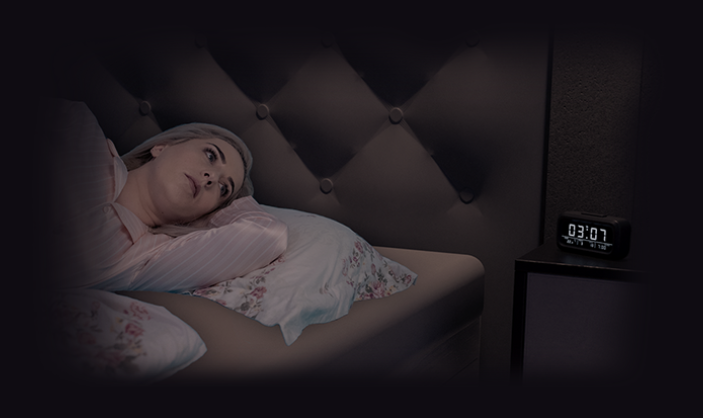
“The decimation of sleep throughout industrialized nations is having a catastrophic effect on our health, our wellness, even the safety and the education of our children, it’s a silent sleep-loss epidemic and it’s fast becoming one of the greatest public health challenges that we face in the 21st century.” – Matt Walker – Ted2019.
Sounds pretty dire, doesn’t it? But it’s not all bad news. The VERY GOOD NEWS is that we have more control than we think we do over how well we sleep. But before we get into how you can improve the quality of your sleep, let’s look at exactly how sleep affects our health.
How Sleep Affects Your Brain and Long-Term Memory
Remember when you were a kid and you’d collapse onto your bed at the end of the day, asleep within seconds? Of course you do – and you’d probably give anything to get that back. That childhood ability we all yearn for has an evolutionary purpose. Children’s brains are primed for learning, as evidenced by the plasticity of a child’s brain compared to an adult’s brain.
Most of us know that sleep after learning helps transfer information to our long-term memory. But recent research suggests that we also need sleep before learning to prepare our brain to absorb new information. It’s kind of like wiping the slate clean to make room for new information. In the case of children, does their brain plasticity enable a better sleep? Or are children’s brains primed to learn because they sleep better? Simply put: does better sleep make us smarter?
A Deeper Sleep Can Improve the Quality of Your Life
The fact that you can recall parts of your childhood is owed to sleep. But if certain details are fuzzy, sleep quality may be to blame. That’s because sleep affects the hippocampus, the brain’s information center, which receives new experiences and stores them to memory. During very deep sleep, bursts of electrical activity called sleep spindles occur that store and preserve events as memories. In effect, the better you sleep, the better your long-term memory.
Quality of life depends on a good memory because if we can’t commit new experiences to memory, we essentially have no record of the life we’ve lived. Although we may remember certain events, we miss out on the fine details that make our lives significant, special, and most importantly, memorable.
But what happens later in life when stress, responsibilities, and ageing impair our ability to get a healthy amount of shut-eye?
As we get older, learning and memory decline, right along with sleep quality – and that’s not a coincidence. You’ve probably already experienced how sleep disruption impairs your memory and your whole-body function. Interrupted and inadequate sleep that continues for too long may contribute to memory decline as you age, and in age-related conditions like dementia and Alzheimer’s.
What that means is that we need a better sleep to maintain a more vivid recollection of our lives and reduce our chances of developing age-related neurodegenerative diseases.
Sleep & The Physical Body
In addition to brain function, sufficient sleep is essential for a healthy cardiovascular system. Even one extra hour of sleep can reduce the risk of heart attacks, road accidents, and suicide rates.
Sleep loss also affects the immune system. While we sleep, our cells begin their renewal work and combat unwanted elements like cancer masses and inflammation. But without sufficient sleep, this process can’t occur.
Poor sleep also weakens the immune system. Just four hours a night reduces cellular activity by 70%, impairing your body’s ability to defend itself against everything from the common cold to more serious, chronic illnesses.
Scientific evidence also shows that sleep can affect our DNA. For example, one study compared the difference between six and eight hours of sleep a night. Researchers discovered that genes associated with long-term inflammation, stress, tumours, and cardiovascular diseases upregulated with less sleep, while genes that fight against disease and work to boost health, were distorted (for more information on this study, refer to the video resource).
It seems the shorter your sleep, the shorter your life.
The Good News Is, You Can Improve Your Sleep
Sleep is an easier and more natural way to treat and prevent neurological conditions than any other therapy. So, how to get better sleep is one of the most important health issues of our time.
Eliminate or reduce caffeine and alcohol consumption
Both substances interfere with sleep. Caffeine stimulates the nervous system and may make sleep onset difficult to achieve. While alcohol may make you feel a bit sleepy, it disrupts the body’s ability to stay soundly asleep through the night.
Do a digital detox every evening
Screens stimulate the brain, and as you age, transitioning between your mental on/off switch isn’t as quick as it once was. Allow your brain at least two hours between your last text message, television series, or YouTube video, and your bedtime.
Make relaxation a priority
Activities like meditation and yoga can help reduce stress, calm the nervous system, and quiet the mind in preparation for sleep. Create an uninterrupted period of time and a quiet space each evening for both. Meditation can be as simple as sitting quietly and focusing on your breath, while yoga can involve gentle, intuitive movements and stretching.
Find a better way to sleep
Regularity is a key factor in improving sleep quality. A cool temperature also makes it easier to fall asleep and stay asleep. But there’s more to it than that. A good sleep may also involve a more comfortable bed, better pillows, or trying a new sleep system.
If you suffer from insomnia, check out ADIVA – revolutionary sleep technology that gently rocks you to sleep, similar to the motion created by gentle waves or a swaying hammock.
Find out how ADIVA works to improve your sleep quality, enhance your health, and extend your life.
This article is based on information collected from a TED2019 recording.
